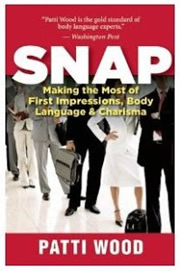Pistorius Body Language and Paralanguage, Crying and Stone-Faced Nonverbal Cues During His Trial for Possibly Murdering His Girlfriend.
What I find interesting in Pistorius’ body language and paralanguage is the shift from his normally very charismatic body language with a very mobile, expressive face and lots of movement to the following nonverbal cues in this trial for murdering his girlfriend:
-
Stone-faced when most people would be showing sadness and loss. Remember he is normally very expressive, his face moves! When listening to testimony before his questioning he seems focused, cool and calm till his "breakdown."
-
Frozen in place body language, posture ridged when most people would show grief or stress– an indication he does not feel the appropriate emotions or feels the need to hide his true emotion. To be clear, the timing of his stiff frozen body language is not the freeze in place body language from fear. In fact, he expresses freely when he is defending himself, but when he should be showing grief he freezes.
-
Steely, long gazes of hate at the prosecuting attorney, that allows you to see how his anger could have caused a murderous rage.
-
Paralanguage strong and fast paced (vocal cues) as he argues with the prosecuting attorney he rarely shows any grief or distress but ,instead is fast paced within each sentence and at times strong and argumentative responses and explanations to the prosecuting attorney. If you just LISTEN to him being questioned by the prosecuting attorney and pay no attention to the words you would think that a teenager was having an argument with his father. When he is questioned at one point he says with his words, "didn't have time to think." but his explanations for his behavior before and after he makes that statement seem specific and concrete, details coming from his rational neocortex. He remembers so many tiny actions and does not miss sharing any of them as he responds to tough questions. He is fighting in this trial, and he fights with details.
-
At times fakes overly, dramatic crying. Sadly, I am experienced, because of my work as a body language expert to distinguish how people cry in true grief in a multitude of circumstances. People tend to move and shift as they cry publicly (often inthe primitive emotional brain’s attempt to get the horror out and away from the body.) You may seem to see the waves of grief wash through them again and again. Sometimes they curl up in a protective snail like posture. They may shake when they cry. If they put their hand to their face, it is typically a hand trying to wipe the tears, symbolically whipping away the grief. Or to holding both hands over the face and pressing in to hold in the grief or letting the grief escape out and overwhelm them. What they don’t typically do is what Pistorius does when he cries. They don’t make themselves bigger that is what we do when we feel confident. They would be more likely in this setting to make their grief intimate and private as they connect with their lost loved one as they grieve. You may see dramatic movements in someone grieving for a loved one in the moments right after the bad news or when surrounded by family more likely in parents and female spouses. Pistorius’ tears are acted and they are not motivated from true grief or lost.
-
Pistorius bent over crying. First he moves in a big and dramatic way in his crying jag but, he cannot sustain it in its natural wave flow of real grief. Instead he bends over and holds still, hidden as he cries. The sound of grief crying tends to come in waves that fade and build not just build then stop. I hate that I know that, but yes there is a difference. I don't like seeing someone fake cry and not say he is sorry over and over again.
No so sorry. People who are truly sorry often repeat the sorry two or three times in a row. Each apology with emotion often in waves of emotion. So it may sound like this, “I am so sorry. I am so, (breaking voice) so sorry (gulp in), so sorry.” (sorry fades out)
Anyone may change how they feel and act when under trial for murdering their girlfriend. But typically the baseline personality and aspects of movement even when considering grief and fear have similarities to their true self. And there is a second baseline I use when reading people under stress. That is the baseline of what is normal for anyone under this particular stress.
Patti Wood, MA, Certified Speaking Professional - The Body Language Expert. For more body language insights go to her website at www.PattiWood.net.

